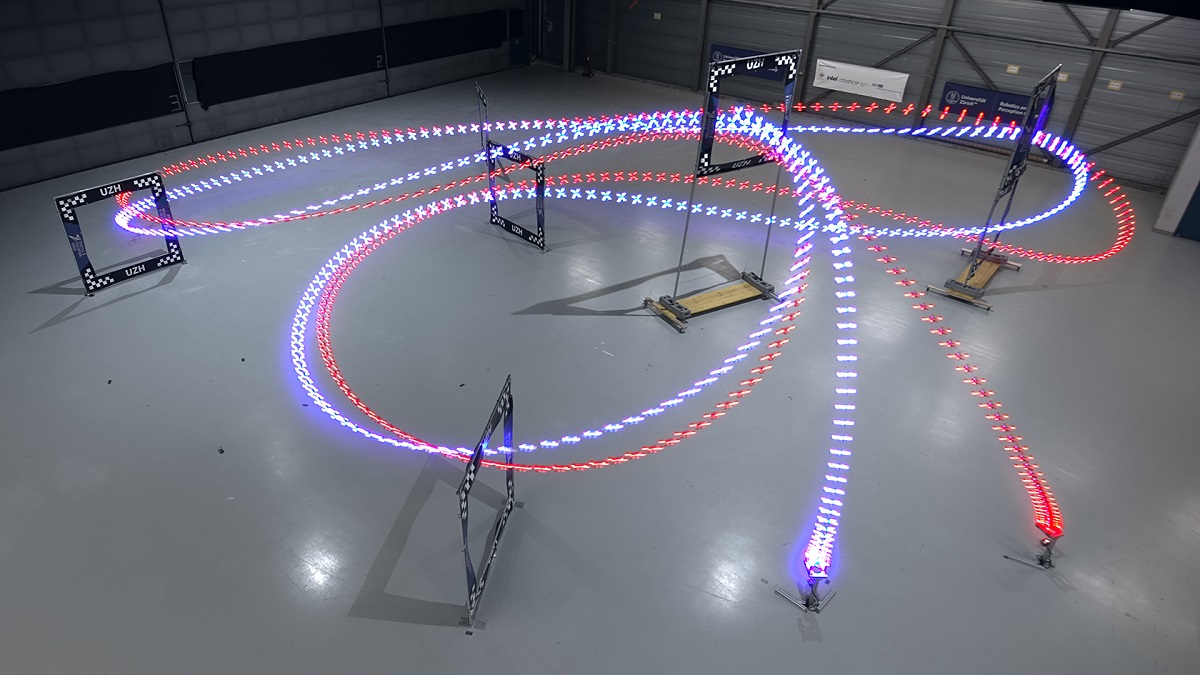Researchers at the University of Zurich and Intel have developed an AI system called Swift that has outperformed world-champion drone racers. Swift was able to beat the three racers in a head-to-head competition, setting the fastest lap time.
The university has been conducting AI and machine learning research for many years and Swift is the culmination of this work. In 2021, the team successfully created a preliminary version of the flight control algorithm for Swift, which leverages external cameras to continuously verify its spatial position.
After rigorous testing against amateur human pilots, Swift consistently outshone its human counterparts, surpassing them in every lap of each race. Achieving this outcome was a significant milestone on its own but before this, autonomous drones relied on simplified physics models to calculate their optimal trajectory, which greatly reduced their maximum speed.
Outshining human racers
This recent achievement marks yet another notable milestone, not only because the AI surpassed professional drone pilots in terms of speed, but also because it did so without the need for the bulky external camera arrays that its predecessor relied on.
“Until very recently, autonomous drones took twice as long as those piloted by humans to fly through a racetrack, unless they relied on an external position-tracking system to precisely control their trajectories,” said the University of Zurich.
“Swift, however, reacts in real-time to the data collected by an onboard camera, like the one used by human racers. Its integrated inertial measurement unit measures acceleration and speed while an artificial neural network uses data from the camera to localise the drone in space and detect the gates along the racetrack.”
Swift’s Breakthrough
All of this data is then processed by a main control unit, which operates as a deep neural network itself, crunching the numbers and developing the quickest and most efficient route around the race track.
“Physical sports are more challenging for AI because they are less predictable than board or video games. We don’t have a perfect knowledge of the drone and environment models, so the AI needs to learn them by interacting with the physical world,” said Davide Scaramuzza, head of the Robotics and Perception Group at the University of Zurich.
Instead of allowing a quadcopter to navigate the track recklessly for an entire month, during which its AI controller would slowly learn the intricacies of the course, the research team opted to simulate this learning process virtually.
The entire process took just one hour, after which the drone was ready to compete against Alex Vanover, the 2019 Drone Racing League champion, Thomas Bitmatta, the 2019 MultiGP Drone Racing champion, and Marvin Schaepper, a three-time Swiss champion.
In the end, Swift achieved the fastest overall lap time, outperforming the human racers by half a second. However, the human pilots demonstrated greater adaptability in response to varying conditions throughout the race.
Isa Muhammad is a writer and video game journalist covering many aspects of entertainment media including the film industry. He's steadily writing his way to the sharp end of journalism and enjoys staying informed. If he's not reading, playing video games or catching up on his favourite TV series, then he's probably writing about them.



































